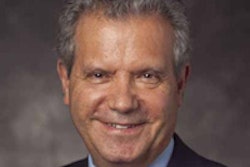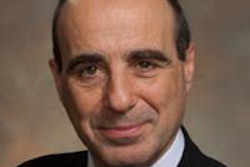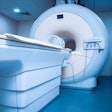
The upcoming U.S. elections in November will significantly affect the practice of radiology, and radiologists need to understand what's at stake, according to an article published in the October issue of the Journal of the American College of Radiology.
While the presidential race between President Barack Obama and former Massachusetts Gov. Mitt Romney has attracted the lion's share of attention, the congressional races under way also promise to have a major impact on how either man will be able to govern. And it's vital that radiologists get involved in the process, according to author Dr. Frank Lexa from the Wharton School of the University of Pennsylvania.
"It's critical that radiologists participate in the election, both donating time and money and voting, in particular voting smart for the future of their profession," Lexa wrote. "We are going through a period of profound change in the economic and social structures of the United States" (JACR, October 2012, Vol. 9:10, pp. 740-744).
Major challenges
Major challenges to the U.S. healthcare system include inflation, fiscal constraints in the federal budget (especially in entitlement programs), demographic changes, questions of values and outcomes in healthcare practice, the ethics of social justice and full healthcare coverage, and ideas about how important specialists are versus primary care physicians, according to Lexa.
And the election will influence challenges specific to radiology, he wrote, including the following:
- How much radiologists will be paid
- Whether the private, independent practice of radiology will continue
- Physicians' degree of professional autonomy within their practices
- Whether the U.S. will evolve toward a single-tier or multitier system
- How power will be distributed in the medical system among hospitals, corporations, and physicians
- How much radiologists and their practices will be taxed
"One can disagree about how [Obamacare] was put together and what's in it, but there are real things that anyone who sits in the White House and any responsible member of Congress should be addressing," Lexa told AuntMinnie.com.
Not just POTUS
"The election is about more than the presidency," Lexa wrote in the JACR article. "Although the president is the single most important person who is electable in the United States, do not forget that the balance of powers in the structure of the federal government gives essentially equal weight to Congress. Also remember that senators and representatives are likely to be more accessible to you and should be easier for you to meet and to support."
If President Obama is re-elected, implementation of the Patient Protection and Affordable Care Act (PPACA) of 2010 will continue, especially since the U.S. Supreme Court upheld the legislation, including the so-called individual mandate, in June. Under another Obama administration, radiologists can expect to see taxation of healthcare benefit plans; possible additional taxes directly on healthcare services; expansion of accountable care organizations (ACOs); continued reduction of reimbursements, both in magnitude and use of fee-for-service models; and increased use of comparative effectiveness research to rationalize care, according to Lexa.
"I'm worried about several things, and one is that specialty care is being targeted for cost reduction," he told AuntMinnie.com. "It's easier to go after specialists, particularly radiologists, than to go after general practitioners. It comes down to issues of perception -- most Americans don't feel they have a personal neuroradiologist -- as well as the media portrayal of specialists as overpaid. Another concern is the degradation of radiologists' autonomy as hospital employment, government, or insurers restrict what we can do."
Of even more concern, surveys have shown that physicians would not encourage their children to become doctors, Lexa said.
"I've seen surveys where only 11% of physicians would advise their children to be doctors," Lexa said. "If people on the inside are advising their kids not to go into medicine, there is something seriously wrong. Think of it this way: If 90% of airline pilots said, 'No matter what, I don't want my kid to be a pilot,' that should make you worry about getting in a plane."
Election outcomes
If Mitt Romney is elected in November, expect continued opposition to PPACA, Lexa wrote, likely including elements of vice presidential candidate Rep. Paul Ryan's (R-WI) fiscal plan. This includes repealing PPACA, converting Medicaid to a federal block grant that would be indexed for inflation and population changes, and privatizing Medicare.
"By choosing Ryan as a running mate, Romney has made Medicare a central campaign issue," Lexa wrote. "Radiologists should pay very close attention to the debates this fall, as the details unfold from both sides."
There are at least four outcomes from the election that radiologists should consider for strategic planning, according to Lexa:
Obama is re-elected and brings a Democratic majority to the House. Expect PPACA to be implemented on its current trajectory. Costs may be higher than projected; Obama pushes to increase revenues or reduce fee-for-service models to keep the plan solvent.
Obama is re-elected, but the House remains Republican. Several scenarios are possible, including gridlock caused by partisan battles, mediocrity with little accomplished, or grand compromises that make effective legislation possible with input from both parties.
Romney is elected with a Republican majority in the House. Genuine repeal of PPACA is likely.
Romney is elected, but the House changes to Democratic control. (Similar scenarios as with the second outcome.)
Radiologists have felt targeted at least since the passage of the Deficit Reduction Act (DRA) of 2005, Lexa said. And it's hard not to succumb to the tendency to read more exams to make up the financial difference. But the picture is bigger than this, according to Lexa.
"If specialists retire and young people don't come in, I can see the U.S. healthcare system losing its strength," he said. "We're good at specialized care, trauma care, rescue care; these capabilities can collapse quickly and are hard to rebuild. The fact is, no one is going to be able to read enough films if reimbursements keep going down. We have to understand that there are other, more titanic things going on."




















